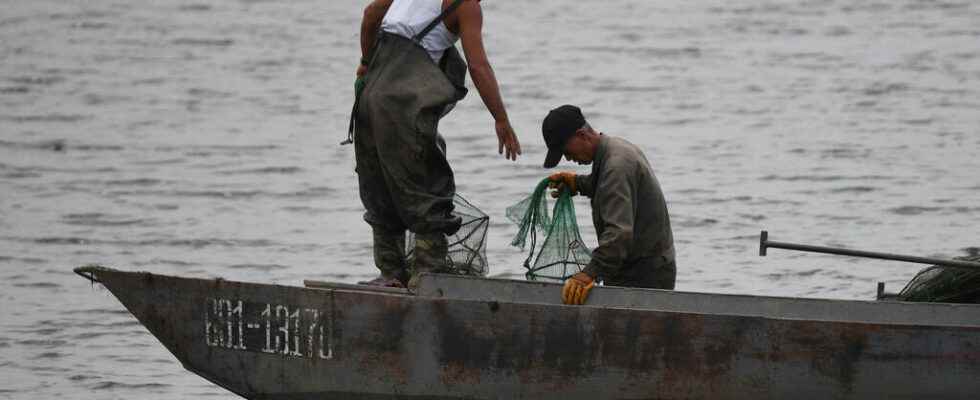It is a court decision that puts the finger again on an unknown reality. North Korean fishermen were sentenced to the penal colony in the Far East of the Russian Federation, it was learned this Thursday, July 7, 2022. They were accused of attacking Russian border guards at sea from Japan, where they were fishing illegally in Moscow waters.
Chinese fishing vessels, which we hear about regularly, are not the only ones who sometimes get caught red-handed in the Exclusive Economic Zones (EEZ) of other countries. A few years ago, this was constantly the case with boats from North Korea, too.
Russian news agencies reported on Thursday that two North Koreans were sentenced to thirteen and eight years in a penal colony in the Far Eastern Federal District, a case that had already resulted in three convictions with terms ranging from four to seven years in prison.
In addition to these five individuals, ten other fishermen were found guilty. They were sentenced to four years in prison, and the judge decided to release them, their sentence having already been served. Finally, two last people were acquitted. A total of 17 crew members were tried in this way.
Squid poaching, high season June-October
The facts date back to September 2019, probably off Primorsky. The investigation concluded that the border guards had apprehended a vessel in the Sea of Japan, in the middle of fishing for squid. The crew members would have attacked the Russians physically, among other things with sticks.
At that time, many boats dared to cross the border. Several North Korean crews had been boarded near the Russian coast, with hundreds of sailors arrested. Several North Koreans and Russian coastguards had been injured; at least one North Korean had been killed.
A veritable wave of poachers. To preserve its own fishery resources, in order to better resell them to China and thus obtain more foreign currency in the context of the sanctions which are stifling its economy, Pyongyang was even suspected of encouraging them.
“Rough wooden boats, made of studded planks”
Primorye shares a border with North Korea. In 2019, then France 24 correspondent in Moscow, Elena Voloshin had investigation on these ” crude wooden boats, made of tar-covered studded planks, with plastic propellers and rocks as anchors “.
Sometimes, she said, local residents discovered the wrecks; ghost boats, with the bodies of fishermen nearby, in some cases. They even gave them a burial, for some of them. The Japanese also noticed it, not understanding the phenomenon very well.
Climate change has been mentioned for a while. But according to the NGOs Outlaw Ocean Project and Global Fishing Watch, Chinese industrial trawlers would not be there. not for nothing. Navigating North Korean waters themselves, they would have pushed the small boats of the country to go on the high seas.
“Every year, about 2,000 Chinese trawlers”
In the Chinese border town of Dandong, in Liaoning, our colleague Elena Volochine had also been able to observe that North Korean agents, in violation of UN sanctions and on behalf of Pyongyang according to her, were illegally selling fishing permits. to Chinese ships.
Fishing is a tense issue in Asia. Like the Japanese, whose fishermen have also been able to rub shoulders with the Russians in the past, the Chinese are big consumers of seafood. , somewhere else.
Since 2017, any transaction involving North Korean seafood products has been prohibited. beijing affirmed have ” prohibits sea fishing operations in maritime areas North Koreans and implemented provisions prohibiting to obtain fishing rights from the DPRK “. In vain ?
►Read again: Sixteen Chinese sailors kidnapped, Beijing calls on North Korea for help
